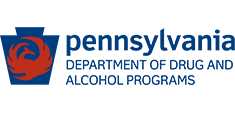The signs, symptoms, and effects of Percocet addiction can be different for every person impacted. Learning about Percocet addiction is one of the first steps towards getting better.
Understanding Percocet
Learn about Percocet and substance abuse
Percocet is a powerful and popular prescription medication that is made up of a combination of both oxycodone and acetaminophen. Oxycodone is an opioid that relieves pain and triggers the onset of euphoric relaxation, while acetaminophen alleviates pain and decreases fever. Percocet is most commonly prescribed to those who have been suffering moderate to severe pain.
When an individual uses Percocet only in the correct amount and for the designated length of time that his or her physician recommends, he or she can experience a number of benefits with little risk. However, the pleasing effects of Percocet have caused many individuals to abuse this medication for purposes of self-medication or in an effort to achieve a recreational high. Each of the ingredients in Percocet can be harmful to a user if he or she abuses this substance. Oxycodone can lead to cardiovascular problems and acetaminophen can cause liver damage. Also, the presence of oxycodone within one’s body can cause an individual to become addicted to Percocet.
If an individual who has been abusing or has grown addicted to Percocet fails to obtain effective professional care for this issue, he or she will struggle with a highly challenging time of removing him or herself from the confines of Percocet addiction. Therefore, it is critical that professional care be obtained so that individuals can defeat the urge to abuse this substance and learn the skills that will allow them to live drug-free lives.
Statistics
Percocet addiction statistics
According to the fifth and most recent edition of the Diagnostic and Statistical Manual of Mental Disorders (DSM-5), approximately 0.37% of the adult population in the United States is affected by opioid use disorder, which is the kind of substance use disorder that includes an addiction to Percocet. The National Institute on Drug Abuse (NIDA) states that the annual number of opioid-related deaths in the United States increased by more than 300% from 1990 to 2010. The U.S. Centers for Disease Control and Prevention (CDC) has reported that yearly prescription opioid overdose deaths in America increased by 265% amongst men and 400% by women during the first ten years of the 21st century. The CDC also states that nearly 300 people die every year in the country because of acetaminophen poisoning.
Causes and Risk Factors
Causes and risk factors for Percocet addiction
A number of factors can impact one’s chances of abusing or growing addicted to Percocet, such as the following:
Genetic: According to the American Psychiatric Association (APA), both novelty seeking and impulsivity are two heritable traits that can increase the odds of an individual’s likelihood of developing opioid use disorder, which includes Percocet addiction. The APA has also reported an increased risk of addiction in those who have a first-degree family member (such as a parent or sibling) who has grappled with chemical dependency.
Risk Factors:
- Novelty-seeking personality
- Impulsivity
- Prior substance abuse and/or mental illness
- Gender (women are at increased risk for Percocet dependence)
- Having a family history of substance abuse and addiction
- Having a family history of mental illness
- Being prescribed Percocet or otherwise having access to this medication
Signs and Symptoms
Signs and symptoms of Percocet addiction
Below are some of the many signs and symptoms that could show that an individual has become addicted to Percocet:
Behavioral symptoms:
- Abusing Percocet even after prior use has resulted in negative effects
- Social withdrawal
- Taking Percocet in greater quantities or for a longer period of time than intended
- Attempting but being incapable of reducing one’s Percocet use
- Trying to borrow or steal Percocet
- Trying to borrow or steal money
- Attempting to obtain a fraudulent prescription for Percocet, or attempting to acquire the drug through another illicit means
- Abusing Percocet when it is clearly dangerous to do so, such as when also ingesting other addictive substances or when operating a motor vehicle
Physical symptoms:
- Exhaustion
- Fatigue
- Dramatically slowed heart rate
- Withdrawal symptoms when not using Percocet
- Slurring speech
- Constipation
- Sleep problems, including insomnia
- Shallower than normal breathing
- Problems with balance, coordination, and motor skills
Cognitive symptoms:
- Loss of ability to focus and/or concentrate
- Problems with memory and judgment
Psychosocial symptoms:
- Agitation
- Mood swings
- Anger and aggression
Effects
Effects of Percocet addiction
Someone who does not get appropriate treatment for Percocet abuse and addiction might experience a series of negative outcomes and impacts, such as, but not limited to, the following:
- Suicidal ideation
- Suicide attempts
- Eye problems
- Damage to heart and lungs
- Social withdrawal or ostracization
- Homelessness
- Sexual dysfunction
- Development and/or exacerbation of co-occurring mental health problems
- Financial ruin
- Arrest, incarceration, and other legal problems
- Injuries sustained due to Percocet-related impairments
- Family discord
- Strained or ruined interpersonal relationships
- Job loss and chronic unemployment
Co-Occurring Disorders
Percocet addiction and co-occurring disorders
Those who become addicted to Percocet might also be at greater risk for several co-occurring conditions, including the following:
- Depressive disorders
- Antisocial personality disorder
- Bipolar disorders
- Posttraumatic stress disorder (PTSD)
- Other substance use disorders
- Anxiety disorders
Withdrawal and Overdose
Effects of Percocet withdrawal and overdose
Effects of Percocet Withdrawal: Someone who tries to stop or dramatically decrease his or her use of Percocet after developing an addiction might suffer a handful of painful withdrawal symptoms, such as:
- Twitches and tremors
- Dysphoria
- Powerful cravings for Percocet
- Insomnia
- Runny nose
- Pupillary dilation
- Elevated body temperature
- Diarrhea
- Excessive sweating
- Watery eyes
Effects of Percocet overdose: An individual showing the following symptoms after consuming Percocet might have overdosed and should receive immediate medical attention:
- Loss of consciousness
- Coma
- Nausea
- Vomiting
- Slowed heartbeat
- Shallow or labored breathing
- Abdominal cramping
- Slurring speech
- Memory loss







